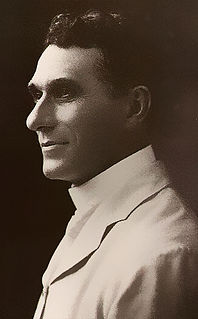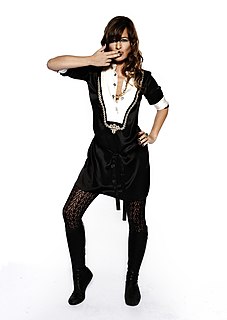A Quote by Joni Mitchell
My individual, psychological descent coincided, ironically, with my ascent into the public eye.
Quote Topics
Related Quotes
The America's Cup World Series was created in 2011, with an eye toward conjuring more off-cycle interest and marketing opportunities. It coincided with the ascent of foiling catamarans, a type of boat that goes faster and looks almost Photoshopped, the way it practically floats in air when it races.
We cannot find God without God. We cannot reach God without God. We cannot satisfy God without God - which is another way of saying that all our seeking will fall short unless God starts and finishes the search. The decisive part of our seeking is not our human ascent to God, but His descent to us. Without God's descent there is no human ascent. The secret of the quest lies not in our brilliance but in His grace.
I am not a psychological novelist, and I try very hard not to allow the reader to see the plight or circumstances of the characters as individual psychological plights. That's my preference; still, a lot of people do read my novels as psychological studies, and they're right to read them that way too, if that's what they mean to them.
For Sabina, living in truth, lying neither to ourselves nor to others, was possible only away from the public: the moment someone keeps an eye on what we do, we involuntarily make allowances for that eye, and nothing we do is truthful. Having a public, keeping a public in mind, means living in lies.
The artist must operate on the assumption that the public consists in the highest order of individual; that he is civilized, cultured, and highly sensitive both to emotional and intellectual contexts. And while the whole public most certainly does not consist in that sort of individual, still the tendency of art is to create such a public - to lift the level of perceptivity, to increase and enrich the average individual's store of values... I believe that it is in a certain devotion to concepts of truth that we discover values.



































